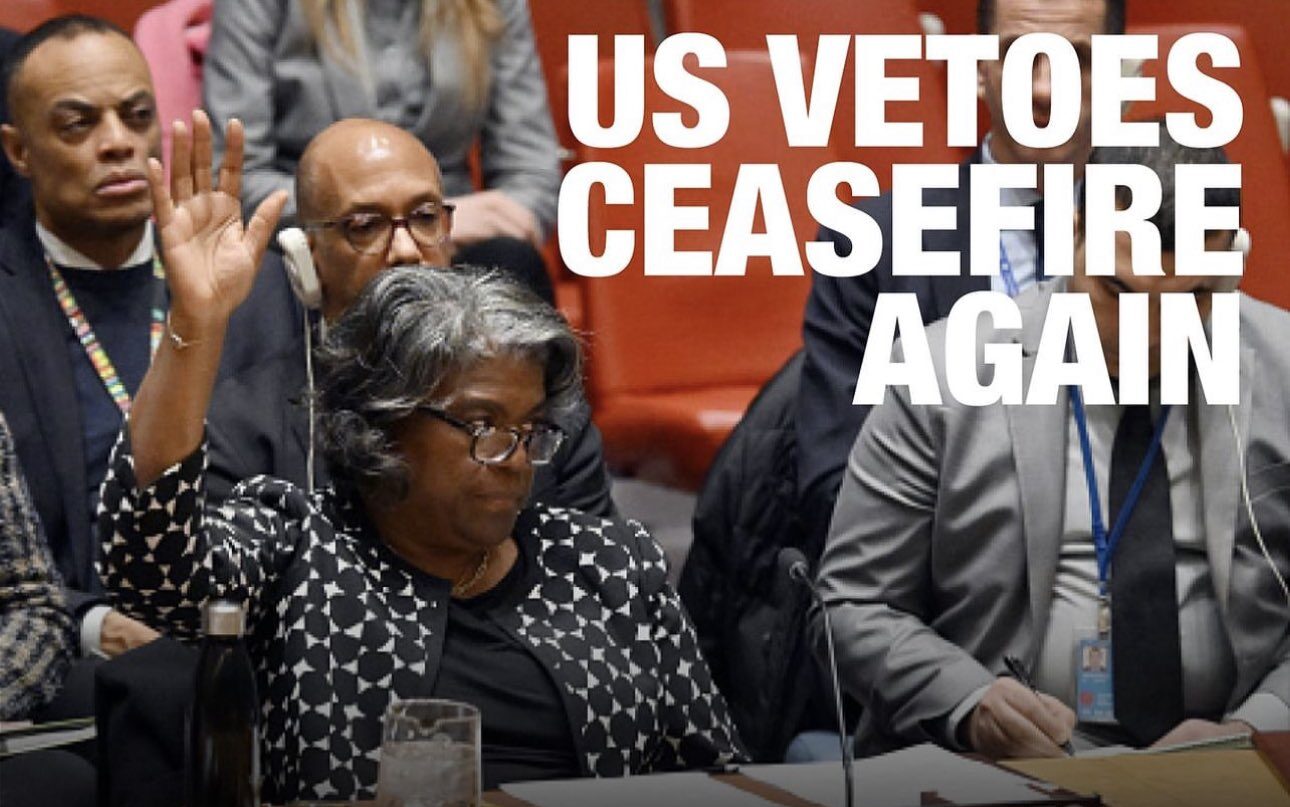The United States recently exercised its veto power at the United Nations Security Council, blocking a resolution that called for an immediate humanitarian ceasefire in Gaza. This veto has stirred a pot of international critique, highlighting a perceived hypocrisy in the U.S.’s approach to democracy and international diplomacy, particularly in its handling of the Israeli-Palestinian conflict.
The resolution, spearheaded by the United Arab Emirates, aimed to halt the ongoing hostilities between Israel and Hamas, proposing a pause to address the dire humanitarian situation in Gaza. It garnered substantial support within the Security Council but ultimately was stymied by the U.S.’s veto. The U.K., another permanent member of the council, opted for abstention, citing the resolution’s failure to condemn Hamas.
U.S. Deputy Ambassador to the U.N., Robert Wood, justified the veto by arguing that the resolution was “rushed” and “imbalanced,” disconnected from the ground realities and would not effectively change the situation in Gaza. Wood emphasized that an immediate ceasefire would only “plant the seeds for the next war,” insisting on a solution that addresses the root causes of the conflict and ensures lasting peace.
This U.S. stance has drawn sharp criticism from various quarters. Human rights organizations, including Amnesty International and Doctors Without Borders, have condemned the veto as a disregard for civilian suffering and a complicit stance in the ongoing violence in Gaza. They argue that the veto undermines the credibility of the U.N. Security Council and displays a selective application of international humanitarian law.
The international reaction has been a mix of disappointment and frustration, with countries like France, the United Arab Emirates, and Turkey vocalizing their concerns over the veto’s implications for peace and justice in the region. Critics argue that the U.S.’s action not only exacerbates the humanitarian crisis in Gaza but also signals a broader issue of double standards in its foreign policy, especially concerning human rights and international law.
This episode underscores the complexities and challenges of navigating international diplomacy amid deep-rooted conflicts. It raises questions about the role of major powers in conflict resolution and the effectiveness of international institutions in enforcing peace and humanitarian principles. The U.S. veto at the U.N. thus serves as a poignant reminder of the intricate dance of politics, power, and principles on the global stage.

